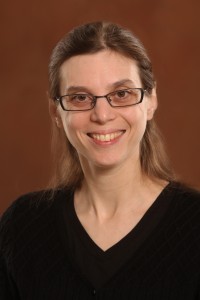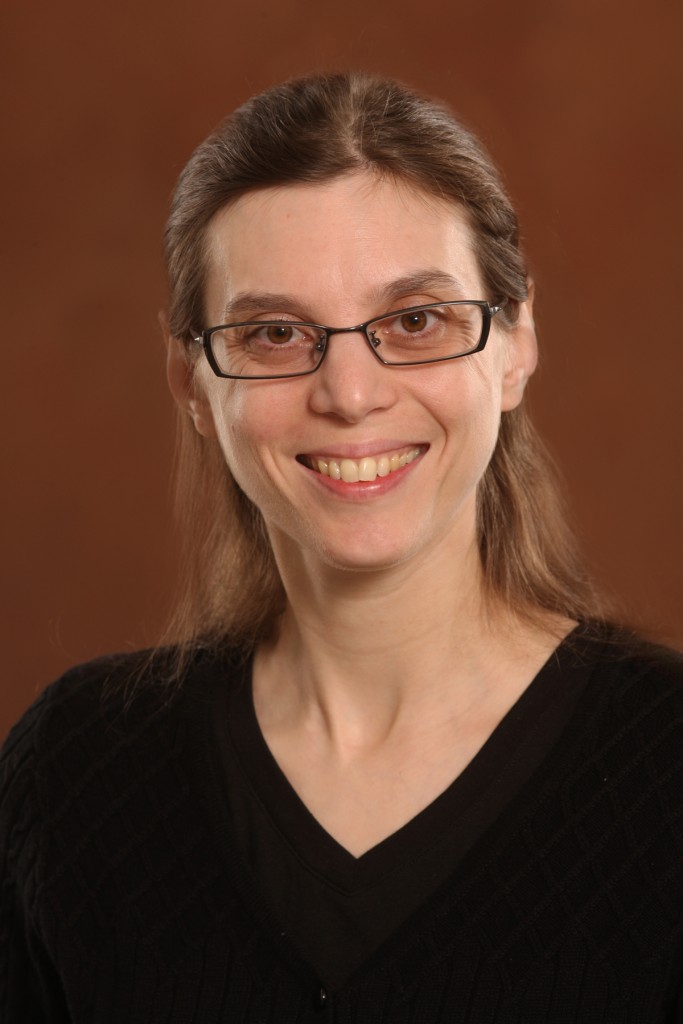New Faculty Profiles showcase GSA members who are establishing their first independent labs. If you’d like to be considered for a profile, please complete this form on the GSA website.

Xantha Karp
Assistant Professor of Biology
Central Michigan University
Lab website
Research program:
During aging, stem cells gradually become less effective at renewing tissue, leading to an overall decline in health. We are studying the mechanisms that maintain multipotent cell fate during quiescence (reversible cell cycle arrest) using C. elegans as a model for aging stem cells. When young C. elegans larvae are cultured in adverse environmental conditions, they pause their development by entering dauer quiescence—an arrested, non-aging and stress-resistant stage. If conditions improve, dauer larvae recover and complete development normally. Therefore, progenitor cells in wild-type dauer larvae maintain their ability to give rise to all proper cell types. The maintenance of multipotency during dauer is an active process involving at least two molecular mechanisms. First, we find that microRNA activity is modulated during dauer in order to regulate cell fate. Second, we find that DAF-16, the FOXO ortholog, is important for maintaining multipotency during dauer. Current projects are probing the intersection of these players with developmental pathways in two cell types in C. elegans dauer larvae.
The Karp lab currently has openings for MS students starting fall 2016. Qualified applicants will be provided year-round support (tuition waiver and stipend) via a combination of teaching and research assistantships. Students will use genetics combined with molecular biology in their research projects and will present their research at regional and international meetings. The goal will be for each student to be an author on at least one peer-reviewed publication. In 2016, we will be moving to the new state-of-the-art Biosciences building. This building will also house the two other C. elegans labs on campus, enhancing our vibrant worm community at Central Michigan University. Applicants should send an email with a statement of interest, a cv, and an unofficial transcript.
How has being a member of GSA helped you advance in your career? Why do you think societies like GSA are important?
The GSA is important to me individually, to the field, and to society as a whole. First, going to the worm meeting is always a highlight of the year, and is an important way for me to stay connected. Second, I think the GSA journals play an important role in the field, and I have very much appreciated their high quality, both as an author and a reviewer. I am also excited for the adoption of WormBook in GENETICS. WormBook is an invaluable resource for the community, and I am happy that it will be able to continue in the future because of this new form. Finally, the education and advocacy missions of the GSA are extremely valuable to inform citizens and lawmakers about the importance of basic research.
Previous training experiences:
- Undergraduate at University of Toronto (research advisors Maurice Ringuette and Theodore Brown)
- PhD in Genetics and Development at Columbia University (advisor Iva Greenwald)
- Postdoc at Dartmouth Medical School and University of Massachusetts Medical School (advisor Victor Ambros), and Columbia University (advisor Iva Greenwald)
Teaching:
I teach undergraduate and graduate courses, primarily in the areas of genetics and cell biology.































